News & Updates
NICHD issues Releases and Media Advisories to the news media. Science Updates and Spotlights explain NICHD research findings and public health issues to the general public. An Item of Interest is a short announcement such as an initiative launch or a notable staff change. Director’s Corner posts are monthly updates from the NICHD director.
Science Update: Maternal depression may age the placenta prematurely, NIH study suggests
Science Update: Placental cells secrete tiny structures that may play a role in regulating blood sugar during pregnancy, NIH-funded study suggests
Science Update: Placental genetic material in maternal blood could potentially diagnose gestational diabetes early, small NIH-funded study suggests
Spotlight: Scientific advances from the Division of Intramural Research
Spotlight: Selected NICHD Research Advances of 2021
Item of Interest: PregSource® Mobile App Allows Access from Anywhere
Item of Interest: Una Grewal Appointed Director of the Division of Population Health Research
Release: Eating habits change only slightly after gestational diabetes diagnosis, NIH study suggests
Spotlight: Selected NICHD Research Advances of 2020
Media Advisory: NIH researchers identify gene in mice that controls food cravings, desire to exercise
Science Update: Placental DNA in maternal blood could predict later pregnancy complications, NICHD funded study finds
Media Advisory: NIH-funded study suggests link between pediatric hospitalization and rising unemployment
Director's Corner: It’s a Family Matter: The NIH INCLUDE Project
Director's Corner: Push to IMPROVE health outcomes for pregnant women
Science Update: Pregnancy, birth complications higher among deaf and hard of hearing women, suggests NIH-funded study
Science Update: Fetal weight gain may begin long before gestational diabetes is commonly diagnosed
The excess body fat seen in infants born to women with gestational, or pregnancy-related, diabetes is associated with higher maternal blood sugar levels as early as the 10th week of pregnancy—long before the time when women are usually screened for the condition, according to a study by researchers at the National Institutes of Health. Moreover, weight gain in the fetuses of women with gestational diabetes first becomes apparent in the 28th week of pregnancy, when many women are first tested for the condition.


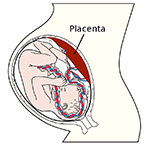
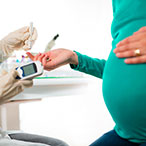
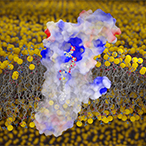











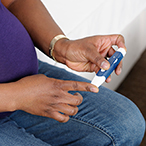

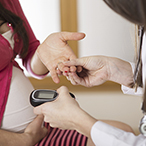

 BACK TO TOP
BACK TO TOP